Here is an overview of a few different types of fresh cheeses, along with links to recipes so you can try making cheese at home. This is part of a series of posts on cheesemaking. Check out Cheesemaking 101 for how-to guides and other topics.
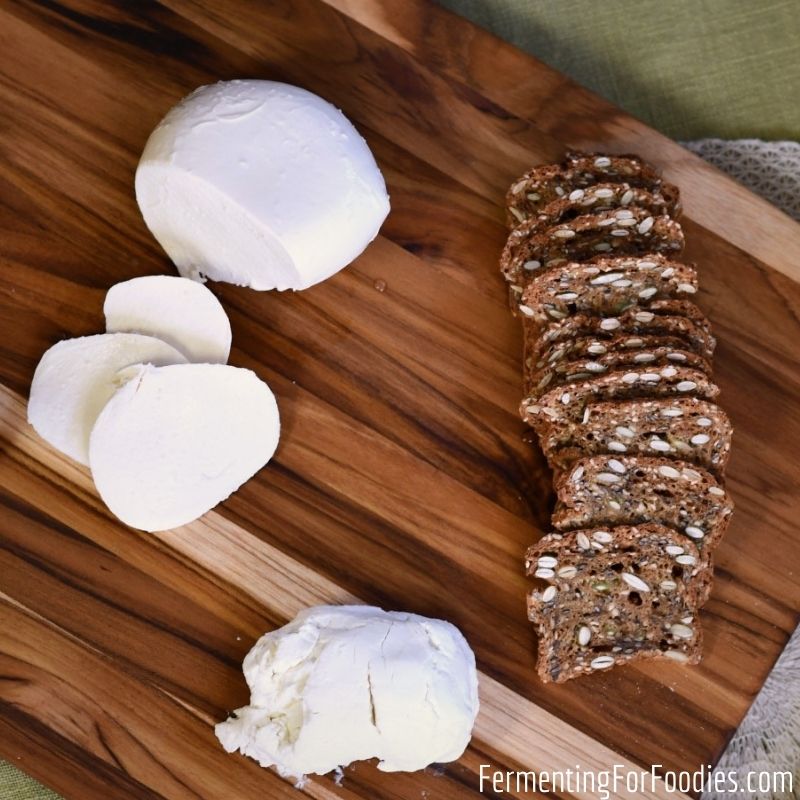
Fresh cheese is any cheese that hasn’t been aged for more than a month. They are much easier to make than hard cheese, which means they are perfect for beginners. Homemade fresh cheese is also very affordable. A gallon of milk will easily make 1 1/2 to 2 lbs. of cheese!
Soft Cheeses
Soft cheeses are definitely the easiest type of cheese to make because they don’t involve anything more than setting the cheese curd, then draining the whey. They avoid any of the work involved with cooking the curds or pressing cheese. Here are five recipes for soft cheese:
- Labneh is the simplest cheese to make. All that’s involved is draining the whey from yogurt! The result is a thick spreadable cheese.
- Cream cheese is made with a mix of milk and cream that has been set with rennet.
- Ricotta involves curdling milk with citric acid.
- Kefir cheese is made from curdled milk kefir. It is a soft, spreading cheese that can be pressed into a firm, crumbly cheese.
- Chevre is a soft cheese made from goat milk.
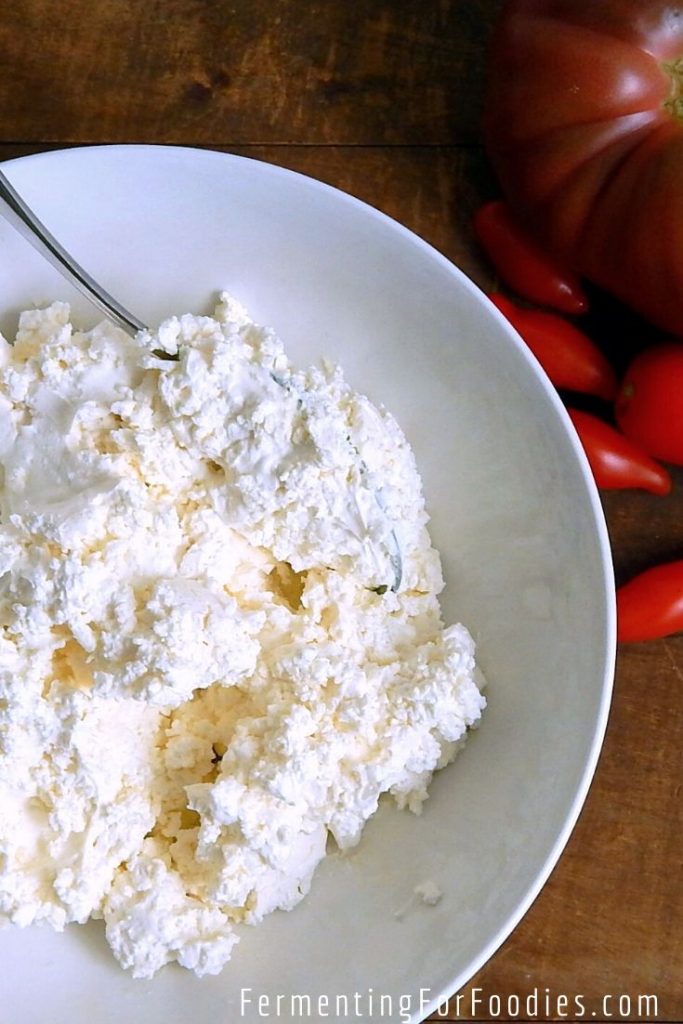
Cooked Curd Cheese
Cooking cheese curds results in a harder curd that is perfect for melting. While all hard cheeses start with cooked curds, here are two types of cooked curd cheeses that are eaten fresh. They are a great way to learn how to set and cook curds. The first steps to making a firm, slicing cheese.
- Cottage cheese is set with cultured buttermilk. The curds are then gently cooked in a hot water bath to remove the lactose.
- Squeaky Cheese curds are dry-cooked after the whey is drained. When eaten within a day or two of being made they have a distinctly squeaky texture and are a real treat. They are a great melting cheese for sandwiches, pizza, and pasta.
Brined Cheeses
Brined cheeses are pressed, then aged for a few weeks in a salty brine. They are generally cheeses that come from warmer climates, so the aging can occur at room temperature. Here are a few types of brined cheese:
- Feta is a gently cooked cheese that is typically made from goat’s milk but can also be made from cow dairy.
- Halloumi is poached in its own whey after pressing. It is a low-acid cheese, so it won’t melt, which makes it perfect for grilling or frying.
- Mozzarella is a high acid cheese that is stretched before brining.
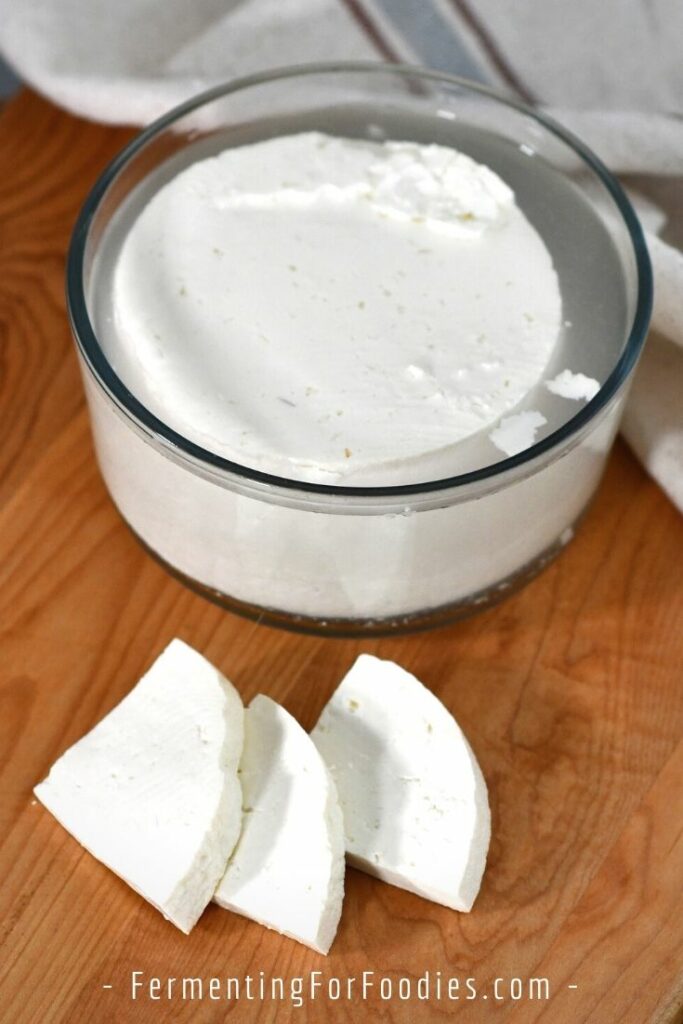

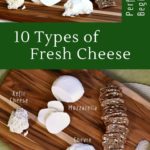
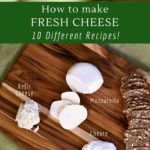

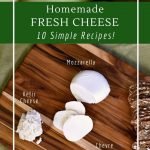
Leave a Reply